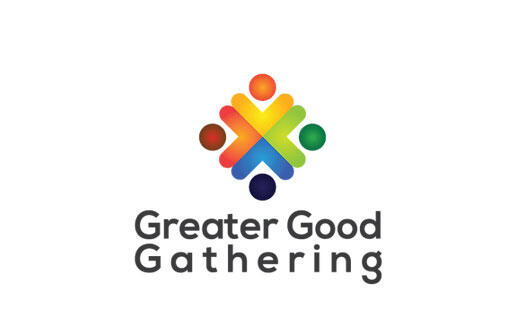
Gathering Examines “Technology, Community, and the Greater Good”

In the United States and around the world, the acceleration of technological advancements prompts a desire, among many, for reflection. The second annual Greater Good Gathering, hosted at Columbia SIPA on February 6 and 7, provided an opportunity to do just that.
Launched in 2017, the Greater Good Initiative aims to promote a better world amid rapidly changing technological innovation, economic disruption, ideological polarization, and governance challenges. Technological interconnection has brought benefits around the globe — but is has also brought negative consequences, including political upheaval and ethnic clashes. In recognition of this reality, this year’s the Greater Good Gathering (an event which has grown out of the Initiative) focused on the possible threats and benefits of technology in creating a greater sense of community.
Dean Merit E. Janow of SIPA joined Gathering founder Eric B. Schnurer to give welcoming remarks. Janow focused on the tremendous opportunities for creativity and entrepreneurship unleashed by technology, and also the polarization and division that technological advancement has created. She also highlighted how SIPA is leading the field in research, citing the school’s commitment to understanding cybersecurity and digital economy.
Janow emphasized that there are many areas warranting deep scholarship — including data security and opportunities for civic tech, which are also very natural places for SIPA to work in collaboration with other parts of Columbia University. In conclusion, Janow said she hoped the everyone in attendance at the Greater Good Gathering, including SIPA students and faculty, would leave the event “motivated to do more.”
The two-day symposium featured notable authors, academics, cyber and tech policy advisors, and activists. A series of panel discussions considered technology’s effects in a variety of arenas -- politics, commerce, social movements, interpersonal relationships, communications, conflict, and others.
Columbia faculty members taking part included SIPA’s Ester Fuchs, Robert Shapiro, and Robert Jervis, as well as Tim Wu of Columbia Law School and Todd Gitlin of Columbia Journalism School.
Among the many other speakers were Soraya Chemaly, director of the Women's Media Center Speech Project and organizer of the Safety and Free Speech Coalition; John Barnitt, a senior at Marjory Stoneman Douglas High School in Parkland, Florida, and co-founder of March for Our Lives; Franklin Foer, the journalist and author; and Kathleen Hall Jamieson, director of the University of Pennsylvania Annenberg Public Policy Center and author of Cyberwar: How Russian Hackers and Trolls Helped Elect a President.
The event concluded on a positive note, highlighting a number of social ventures confronting many of these issues in the world. In doing so, it reminded all attendees that while there are problems on the horizon, there are also many brilliant people already working on the solutions.
— Alexandra Feldhausen MIA ’19 and Claire Teitelman MPA ’19